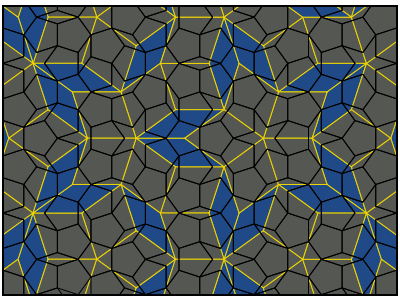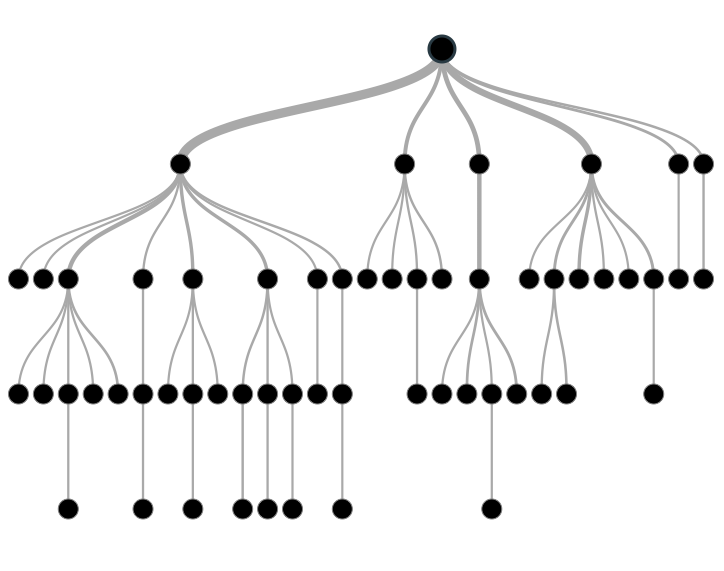If a quality attribute is an adjective describing something, and an organization is a set of people segmented by purpose, then what kind of quality attributes could be used to describe an organization? A good place to begin is with a segmentation of purposes. What is the purpose of the organization? I am bathed in neoliberalism. You might even say that I have been marinated in it. Pickled. The first segmentation that comes to mind each contain the term profit. There are for-profit organizations, non-profits, and not-for-profits. Profit-as-a-Purpose predisposes an organization whole range of quality attributes. Non-profits and not-for-profits are predisposed to another set of quality attributes. Profit motive offers one cleavage for segmentation. It’s obvious because it’s the neoliberal thing to[…]
Tag: culture
The Canadian state has had an interesting relationship with networks since the beginning. Networks connect things and enable outcomes. Those who direct and influence the State have preferences for what those outcomes should be. To understand how the state is grappling with the consequences of social networks, it might be useful to look at how it has grappled with physical networks. We’ll begin with some basic theory about the Canadian State. Canada is made of citizens. Some of those citizens become leaders. Those leaders try to create some explainable representation of society’s optimal social welfare function, and package it into something people can recognize, understand and vote for. They do that because they need the consent of the citizens in[…]
Maybe you should read Thomas Kuhn’s The Structure of Scientific Revolutions. Maybe you shouldn’t. Here’s a little bit of information to make up your own mind. When I use the word paradigm, I mean it in the Kuhnian sense. I don’t use it as a hyperbole or superlative. I don’t look at a new ice cream brand extension and breathlessly declare that it’s a paradigm shift in desert delivery. Paradigm shouldn’t be a buzzword. Kuhn defined a scientific paradigm as a set of evidence, experiments, achievements and observations that are universally recognized, that provide a set of problems and solutions that are worthy of a communities’ focus. Communities are very particular about what they consider to be knowledge and what[…]
Everybody experienced 2020 in a different way. I offer one perspective. I limped into January from 2019. It was a tough year in that it was tougher than 2018 and 2017. Tough for a few reasons. It was a stretch year. Technology was causing discomfort but not change. Social systems struggled. It was a stretch year for leadership development. After testing dozens of heuristics (rules of thumb), I was in the process of adopting a half dozen. They’d serve me well in 2020. January January was to be a month of consolidating the learning and incorporating the learnings deep into the heart and mind. I chose to dream in Hawaii. And it worked. I experienced sleep that was deep and[…]
2020 hasn’t been easy. Figures from the US Census Household Pulse Survey can be used to tell a story of anxiety, hunger, depression, desperation and hopelessness. Millions are hurting. 2020 is hitting the poor, the young, and those who are low to mid-skilled the hardest. 2021 isn’t looking easy. Vaccines will take time to rollout. The recovery depends on collective health security. Health security causes confidence, confidence causes increased risk tolerance, increased risk tolerance leads to investment, and investment stimulates growth in private sector productivity, labour market demand, and opportunity. It will take time for each part of the chain to develop. It all lags. A return to the previous trend line doesn’t address the underlining cause of wage polarization.[…]
Software agility is not business agility (Klaus, 2018). If that sounds true to you, then the rest of this post should be a fun read. If it is not, this may be challenging. It could still be a fun read. Software Agility The collection of knowledge called Agile Methods, as applied to developing valuable software, is deep and broad. Much of the variance both within communities and across communities is caused by the ambiguities in their experiences and where they’re at in their personal and leadership development. There are good reasons for the distinctions among the different forms of Agile. The Universe is whatever you say it is, so just say. Business, Busyness, Problems Have you ever participated in a[…]
There’s an entire complex rooted on the idea that business plans are intelligently designed. Let’s probe that idea a bit. I enjoy Eric Beinhocker’s ideas about complexity economics. I’ve written of his ideas again and again and again. One of the most polarizing talks I’ve ever given was centred on his idea of a Library of Smith. It’s the idea that every single business plan that has ever been written, will ever be written, or can ever be written is contained in an imaginary library named after Adam Smith. Somewhere in this library is the elusive Google Business Plan from 1999. There’s also GE’s business plan for 1956. And another business plan with the letter ‘A’, repeated 99,000 times. I[…]
Often, there is a crisis that is visible to all, but nobody acts. Why does this pattern repeat? Spoiler: One of my favourite books is by Shigetaka Komori: Innovating Out of Crisis: How Fujifilm Survived (and Thrived) As Its Core Business Was Vanishing. In it, Komori describes how Fujifilm survived while Kodak failed. Another one of my favourite books is by Kathleen Thelen, in an epic entitled How Institutions Evolve: The Political Economy of Skills in Germany, Britain, the United States, and Japan. In it, Thelen describes how institutional lock-in occurs. In this post, I’ll combine themes from Komori and Thelen, with an insight about beliefs, in an effort to explain a part of why groups of people who are[…]
Canadians are a people shaped by physical and social geography. Both explain a portion of why we are who we are, and how we relate to each other. Covid-19, an executable snippet of code wrapped in protein with the sole goal of persistence, is shaping us. It has already affected our social demography. Will it change Canada’s social geography? What It Is Population density is a pretty good indicator of attitude. I can’t make the claim that it’s always causal for all people, After all, did living with 25,000 others in a square kilometre in downtown Toronto make you more conscious of mental health challenges facing the population, or were you always conscious and chose to live with others who[…]
The one pager is a beautiful tool. It’s one page. It is something that you are bringing to a persons’ mind. It contains a limited amount of language – around 300 words or less if there is a chart or many bullet points. Most people can read it in around 90 seconds, though, some can do it in 60 seconds. Those are the constraints. You use tools to achieve goals. We’ll start there, dive into each one, and I’ll conclude with a few experiences. Goals Three common goals are to persuade, to declare, or to engage. Persuasion is often about convincing oneself, another, or a group to form a belief. Declaration is often about sharing or proclaiming a decision, fact,[…]





